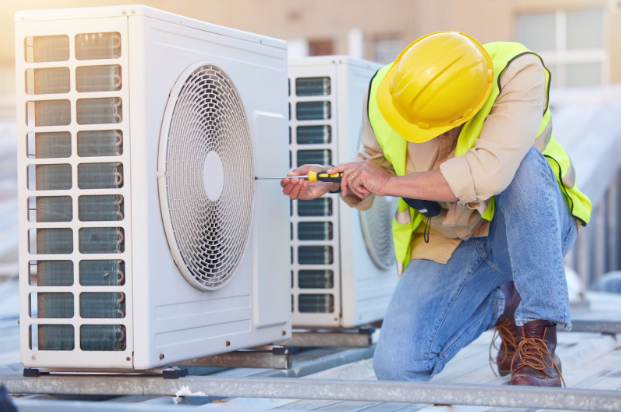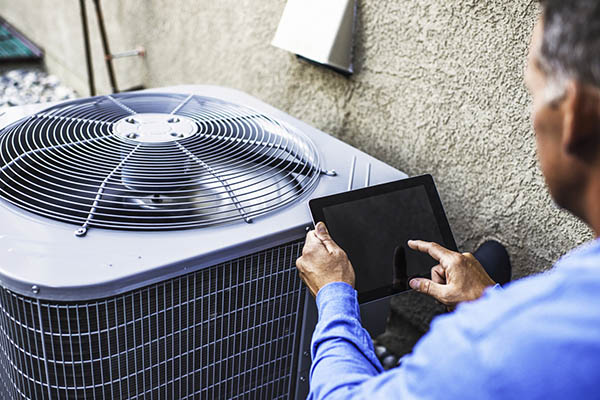Unlock higher-paying opportunities with HVACJobsOnly today
Wiki Article
A Comprehensive Guide to Cooling And Heating Jobs: Skills, Training, and Work Prospects
The cooling and heating industry is a dynamic area that requires a special collection of skills and training. Experts must possess strong communication and problem-solving capabilities while paying very close attention to information. Trade training and qualifications are important for those aiming to enter this sector. As need for energy-efficient modern technologies grows, so do task leads. Comprehending the requirements and pathways can open up varied chances within this industry. What are the key variables that can affect career improvement?Crucial Skills for A/c Professionals
Technological understanding is essential, A/c professionals should likewise possess a diverse set of essential abilities to succeed in their area. Interaction skills are vital, as service technicians typically connect with customers to clarify complicated issues and services in easy to understand terms. Problem-solving capacities are just as essential; experts should identify and fix HVAC system breakdowns successfully.
Additionally, solid attention to information guarantees that installations and fixings are finished accurately, reducing potential issues. Physical endurance and mastery are essential, offered the needs of the work, including lifting heavy devices and functioning in constrained rooms.
Time administration abilities allow HVAC professionals to prioritize jobs properly, ensuring prompt service shipment. Lastly, adaptability is vital in a quickly evolving industry where new innovations and practices emerge regularly. Jointly, these abilities boost a HVAC specialist's effectiveness, ensuring they meet customer requirements while preserving high standards of solution.

Training and Certification Requirements
To succeed in the cooling and heating sector, individuals need to go through details training and acquire appropriate accreditations that validate their skills and expertise. Usually, striving HVAC specialists start with a secondary school diploma or equivalent, adhered to by employment training or an associate level in heating and cooling modern technology. These programs often cover essential principles, system design, and repair techniques.In enhancement to formal education, acquiring qualifications from recognized companies, such as the Environmental Security Firm (EPA) and North American Specialist Quality (NATE), is vital. EPA qualification is necessary for dealing with refrigerants, while NATE qualification shows proficiency in different cooling and heating subjects.
Hands-on experience with teaching fellowships or apprenticeships additionally enhances a person's credentials. Continual education is additionally important, as the a/c industry evolves with new innovations and laws. By fulfilling these training and accreditation needs, people place themselves for success in a competitive task market.
Job Paths in the Cooling And Heating Industry
With the needed training and qualifications in position, people can explore various occupation paths within the cooling and heating industry. Common roles include a/c professional, that performs setup, maintenance, and repairs of home heating, ventilation, and air conditioning systems. Another alternative is ending up being an a/c engineer, concentrating on system layout and effectiveness, often requiring advanced education in design principles.Furthermore, people may seek sales functions, specializing in HVAC services and products, which require solid communication abilities and technological knowledge. Some may select to progress right into monitoring settings, supervising teams and projects while making sure conformity with market standards. Opportunities exist in energy bookkeeping, where specialists evaluate energy usage in buildings and advise improvements. Each path provides special challenges and incentives, dealing with diverse ability and interests within the HVAC field.
Task Leads and Employment Opportunities
The a/c industry boasts a strong demand for qualified professionals, driven by the ongoing need for environment control systems in household, commercial, and industrial settings. As energy efficiency and environmental sustainability ended up being increasingly crucial, the need for skilled specialists remains to increase. Task potential customers are specifically positive for those with specialized training and certifications, as companies seek people with the latest knowledge in energy-efficient modern technologies and wise cooling and heating systems.
According to industry records, the work of heating and cooling specialists is projected to grow considerably over the next years, mirroring the industry's durability even during economic variations. In addition, as older systems call for replacement and brand-new buildings emerge, chances encompass both dig this seasoned specialists and newbies. Numerous heating and cooling business are also expanding their solutions, developing further openings (HVACJobsOnly). Overall, people entering the informative post HVAC area can anticipate a robust work market, with adequate chances for growth and security
Tips for Progressing Your A/c Profession
As experts browse their HVAC professions, pursuing continual education and specialized training can substantially improve their improvement prospects. Participating in qualification programs, such as those used by North American Professional Excellence (NATE) or the Refrigeration Solution Engineers Society (RSES), can substantially boost a professional's trustworthiness and data base. Networking within the industry is just as vital; participating in trade convention, workshops, and neighborhood sector events can open doors to new possibilities and partnerships.
Furthermore, gaining experience in diverse locations, such as business systems or power performance technologies, allows service technicians to come to be versatile specialists - HVACJobsOnly. Establishing soft skills, including interaction and problem-solving abilities, is very important for those going for managerial or administration duties. Staying notified about industry fads and arising innovations assurances that Heating and cooling professionals continue to be affordable in a rapidly developing field, positioning them for lasting career success.

Often Asked Questions
What Is the Typical Wage for Cooling And Heating Technicians?
The ordinary salary for HVAC specialists varies by location and experience however normally varies between $40,000 and $60,000 every year. Aspects such as accreditations and field of expertise can greatly affect gaining potential in this area.Exist Specialized Cooling And Heating Area to Think About?
Yes, there are customized heating and cooling areas, consisting of residential, commercial, and commercial heating and cooling, as well as locations like refrigeration, energy management, and indoor air high quality. Each specialization offers special abilities and job opportunities within the market.Just How Can I Discover HVAC Task Openings?
To discover a/c work openings, individuals need to explore online job boards, company internet sites, industry-specific discussion forums, and local trade schools. Networking with experts in the area can likewise discover covert possibilities and possible task leads.What Tools Are Necessary for A/c Job?
Important tools for HVAC job include multimeters, cooling agent determines, pipeline wrenches, air pump, and leakage detectors. These tools make it possible for technicians to detect, repair, and keep air, heating, and air flow conditioning systems properly and effectively.Can I Operate In HVAC Without Qualification?
Yes, one can function in heating and cooling without certification, although possibilities may be restricted. Many companies choose licensed candidates, and individuals without qualification may locate it testing to development in their occupations or access specific work placements.To stand out in the Cooling and heating industry, individuals should go through details training and acquire pertinent certifications that confirm their abilities and understanding. Usually, aiming HVAC specialists start with a high check these guys out college diploma or equivalent, followed by professional training or an associate level in HVAC technology. With the needed training and certifications in location, individuals can explore different occupation courses within the HVAC sector. According to industry reports, the employment of Heating and cooling service technicians is projected to grow considerably over the next years, showing the market's durability even throughout economic fluctuations. Yes, there are specific Heating and cooling areas, including residential, commercial, and industrial A/c, as well as locations like refrigeration, power monitoring, and interior air top quality.
Report this wiki page